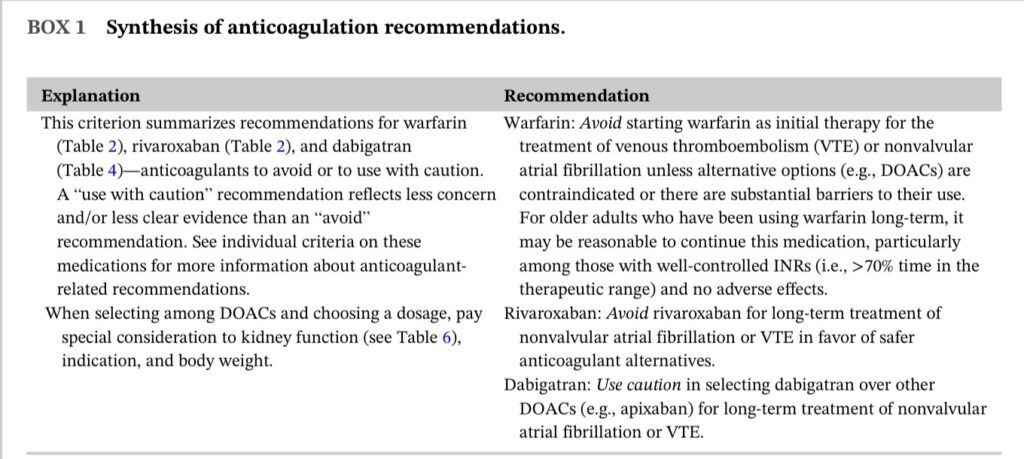Summer 2023 Newsletter

Mohamad Salamah
Lisa C. Hutchison, Pharm.D., MPH, BCPS, BCGP
Every few years, a panel is assigned by the American Geriatrics Society (AGS) to update the AGS Beers Criteria® for Potentially Inappropriate Medications (PIM) for older adults (65 years or older). In 2023, the criteria was updated with a revised list of medications that can be harmful to older adults. Since most older adults are on at least one or more prescription medications, it’s important to identify possible drug-drug interactions or any harm medications can cause in chronic conditions that are often associated with older adults. The goal of the 2023 AGS Beers Criteria® is to minimize the possible exposure of older adults to PIMs by educating clinicians and patients about evaluating if the risks of certain medications are justified in the use of older adults.1
The AGS Beers Expert Panel divides the list into 5 different categories:
1. Medications considered as potentially inappropriate in all older adults
2. Medications potentially inappropriate in patients with certain diseases or syndromes
3. Medications to be used with caution
4. Potentially inappropriate drug-drug interactions
5. Medications whose dosages should be adjusted based on renal function.2
The 5-category system is similar to the 2019 Beers Criteria®.3 The 2023 panel consisted of 12 experts that were involved in different healthcare fields such as nursing, medicine, and pharmacy. They investigated evidence on individual drugs published between 2017 to 2022 to determine how to update the 2019 AGS Beers Criteria® which was based on previous evidence. Both lists used the Delphi method to cast their opinion and reach a final decision regarding the drugs to include.1,3
Notable changes are seen in the 2023 AGS Beers Criteria® following the recent update from the panel. For example, aspirin, which was previously used regularly in primary prevention of cardiovascular disease, was moved from the “use with caution” table and is now deemed as category 1, which is a PIM not recommended for use in all older adults. Older adults who are already on aspirin as primary prevention of cardiovascular disease are recommended to stop taking it as the risk outweighs the benefit.1,3 Key changes in anticoagulants are likely the biggest headline of the new update (See Box 1). Warfarin is now listed as a medication to be avoided unless direct oral anticoagulants like apixaban are contraindicated when an initial therapy is needed for venous thromboembolism (VTE) or nonvalvular atrial fibrillation (AF). Rivaroxaban is now considered a medication to avoid in older adults for long-term treatment of nonvalvular AF and VTE due to risk for bleeding; before this update it was listed as a ‘use with caution’ medication for older adults.

Changes also occurred in the class of anticholinergics, which should be avoided in older adults to reduce the cumulative anticholinergic burden that can cause an increased risk of falls, constipation, delirium and possibly dementia. In the 2019 criteria, all anticholinergics were listed together, but are now split up into the categories of Antihistamines, Central Nervous System (antiparkinson anticholinergics), and Gastrointestinal (antispasmodics).1, 3
There were also changes in medications used for the treatment of diabetes. All sulfonylureas are now recommended to avoid in favor of newer antidiabetic agents to decrease the risk of prolonged hypoglycemia, cardiovascular death and stroke, which are more likely to occur with sulfonylureas. However, of the newer agents, sodium-glucose cotransporter-2 inhibitors are recommended to be used with caution due to the increased risk of euglycemic diabetic ketoacidosis and urogenital infections in older adults.1
The 2023 AGS Beers Criteria® can aid practicing clinicians as well as other healthcare professionals in deciding appropriate therapies for older adults; however, it should be noted that the criteria does not apply in the case of hospice. Additionally, the criteria are focused on medications that are available in the U.S. rather than worldwide.2 This is important to address since there are other medications worldwide that can also prove to be more harmful than helpful to older adults which the AGS Beers Criteria® may not cover. The goal for the 2023 AGS Beers Criteria® remains to improve the quality of care and life for older adults by guiding healthcare professionals in selecting optimal medications for treating older adults.
References:
- American Geriatrics Society 2023 updated AGS Beers Criteria® for potentially inappropriate medication use in older adults. J Am Geriatr Soc. 2023;1‐30. DOI: 10.1111/jgs.18372
- Meyer K. Mook H. What’s on tap: 2023 Beers Criteria update. Pharmacy Today July 2023. www.pharmacist.com › DesktopModules › EasyDNNNewsWhat’s on tap: 2023 Beers Criteria update – pharmacist.com (Accessed August 16, 2023)
